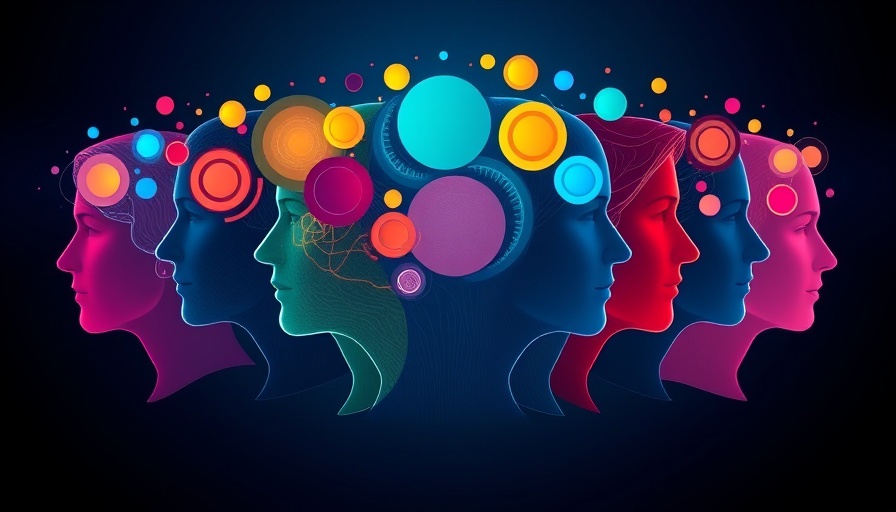
The Evolving Landscape of Workplace Mental Health
Workplace mental health is an ever-increasing priority, especially as younger generations like Gen Z and millennials continue to reshape the norms surrounding their work environments. Each year, World Mental Health Day reminds us to reflect on how organizations support mental well-being in the workplace, and 2025 is no exception. This year's Deloitte Global 2025 Gen Z and Millennial Survey highlights the urgent need for employers to adapt their mental health strategies based on the concerns and experiences of these two influential generations.
Key Insights from the Survey
According to the survey, mental health is the second most-cited societal concern among Gen Zs, trailing only the rising cost of living. Interestingly, over half of both generations report that their mental well-being is rated as good or extremely good—but a large proportion still feel the weight of stress and anxiety at work. In fact, 40% of Gen Zs and 34% of millennials often report chronic stress, with significant amounts attributing that stress to their job.
What Contributes to Stress in Today’s Workforce?
Among those expressing stress at work, long hours, inadequate recognition, and toxic workplace cultures emerged as major contributors. For instance, 48% of Gen Z workers and 47% of millennials designated long working hours as a primary source of their anxiety. In a world that increasingly values work-life balance, it’s clear that organizations need to redefine how they approach employee workloads and recognition.
The Power of Communication: Addressing Mental Health Concerns
It is heartening to note that a significant number of Gen Zs (62%) and millennials (64%) feel comfortable discussing mental health with their managers. While many believe that their managers could provide support, there remains a palpable fear of discrimination when addressing mental health issues. This highlights a critical gap between the intention and the reality of managerial support. Employers should consider fostering an environment where such conversations are encouraged, creating safety nets for employees to share their struggles openly.
Future of Work: Adapting to New Realities
As we move forward, organizations will not only have to contend with evolving employee expectations but also adapt to generational shifts in workplace values. For instance, both generations prioritize a healthy work-life balance over the climb up the corporate ladder. According to the Deloitte survey, only 6% of respondents framed career success primarily as achieving leadership positions. This illustrates a transformative mindset where money, meaning, and well-being must coexist for employees to find satisfaction in their roles.
Enhancing Mental Wellness: Practical Steps for Organizations
Organizations wanting to create a thriving workforce should not merely address mental health as a checkbox item. They must prioritize robust policies that integrate mental wellness into the workplace culture. Actions such as providing flexible schedules, mental health resources, and actively promoting a culture that prioritizes well-being are essential to retaining top talent. Furthermore, companies that model healthy boundaries and communicate clear expectations can garner trust and engender loyalty among Gen Z and millennials.
The Time for Action is Now
With Gen Z projected to make up 30% of the workforce by 2030, businesses that fail to meet their mental health expectations risk losing talented individuals eager to make meaningful contributions. Acknowledging these aspects is not only beneficial but essential for fostering a supportive work environment.
Become a workplace mental health ally: prioritize mental health, expand offerings of flexible work arrangements, and ensure that all employees know the resources available to them. In doing so, organizations can cultivate healthy workplaces that not only attract but also retain engaged employees capable of driving innovation and growth.
 Add Row
Add Row  Add
Add 




Write A Comment